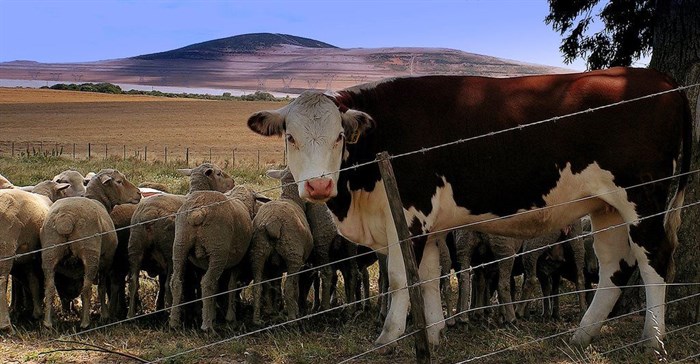SA bans livestock imports from Lesotho

The Veterinary Authority of Lesotho has reported three anthrax outbreaks to the World Organisation for Animal Health (OIE).
According to a report, the first outbreak started on 12 May 2019, and a total of 24 cattle were reported to have died of anthrax.
Anthrax, which is a disease of humans and warm-blooded animals, is caused by the bacterium Bacillus anthracis.
Animals become infected by eating or licking material that is contaminated with spores or breathing in the spores. These spores are formed when the bacteria are exposed to oxygen in the event that an animal that died of anthrax is cut open.
The spores are resistant and survive for long periods (up to decades) in the environment. Humans most commonly contract the disease through contact with anthrax-infected animals or animal products such as meat.
The department said that Animal Health is in contact with the Veterinary Authority of Lesotho to ensure safe trade, while the anthrax outbreaks are ongoing.
"A ban has been imposed on imports from Lesotho into South Africa of live animals susceptible to anthrax and products of these animals, including wool," the department said.
How can livestock owners protect their livestock?
• Make sure that their livestock are vaccinated against anthrax once every 12 months with a registered vaccine;
• Report any sudden deaths of livestock with blood oozing from carcass openings to their responsible State Veterinarian, private veterinarian or animal health technician for investigation;
• Do not open up any carcasses of animals that have died suddenly; and
• Only purchase livestock that look healthy from a trustworthy source.
How can consumers protect themselves from contracting anthrax?
• Make sure that the meat you buy originates from an abattoir that is registered in terms of the Meat Safety Act, 2000 (Act No. 40 of 2000). Animals slaughtered at these abattoirs are inspected before and after slaughter and only meat that is passed fit for human consumption is released from these registered abattoirs;
• Do not open up any carcasses of animals that have died suddenly;
• Do not eat or handle the meat of animals that have died suddenly; and
• Only slaughter animals for own consumption when there are no signs of disease or deaths in the animal and the herd.
Source: SAnews.gov.za
SAnews.gov.za is a South African government news service, published by the Government Communication and Information System (GCIS). SAnews.gov.za (formerly BuaNews) was established to provide quick and easy access to articles and feature stories aimed at keeping the public informed about the implementation of government mandates.
Go to: http://www.sanews.gov.za










